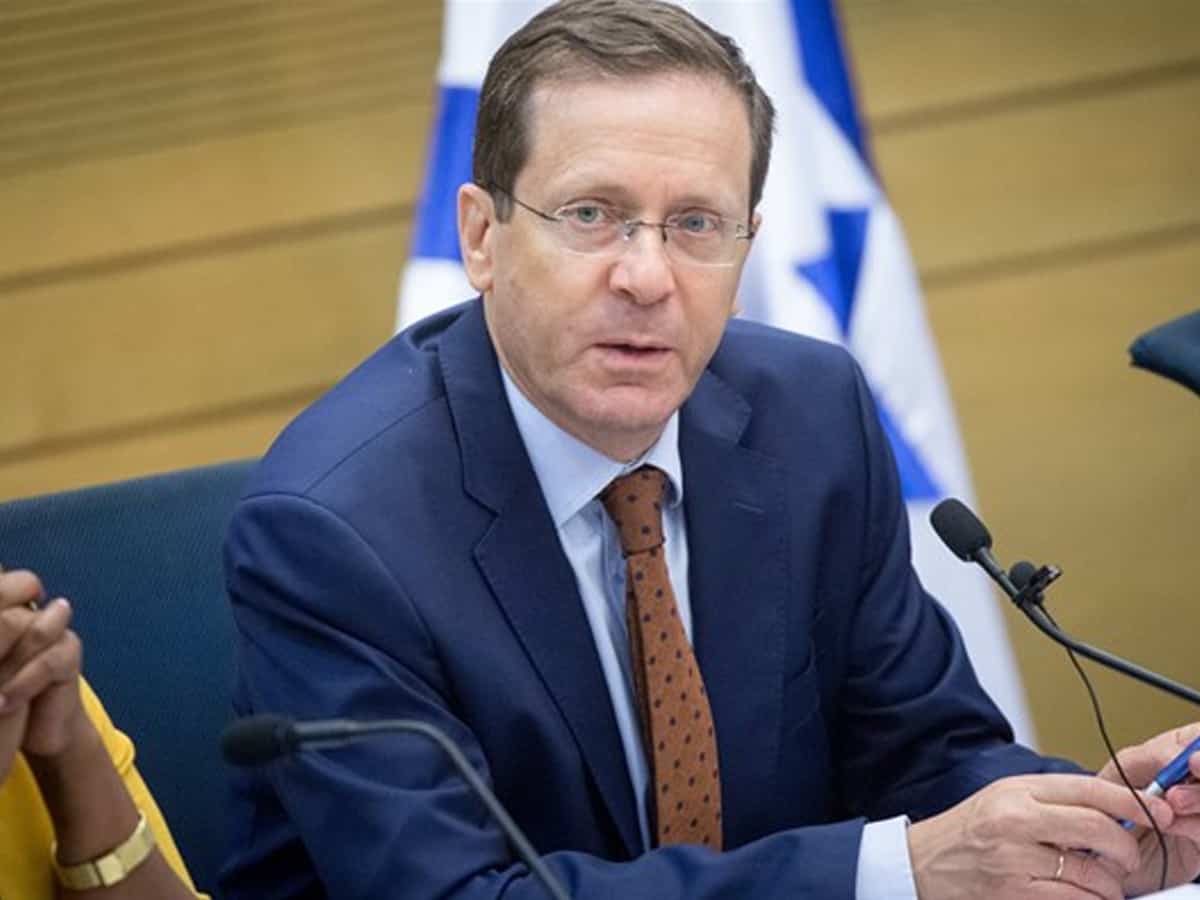
Jerusalem: Israeli President Isaac Herzog on Wednesday received the official results of the recently held elections to the Knesset from the country’s top election body and he will now hold consultations with the political leaders to initiate the process to form the next government.
Israel’s Central Election Committee last week announced the final allocation of seats for the 25th Knesset, giving 73-year-old former prime minister Benjamin Netanyahu’s Likud party and its far-right and religious allies 64 seats in the 120-member parliament, enough for a governing majority.
“President @Isaac_Herzog received the official results of the elections to the Twenty-Fifth Knesset from Central Elections Committee Chairman Justice Yitzhak Amit at the President’s Residence today. Consultations with the factions will begin this afternoon,” the president’s office tweeted on Wednesday.
President Herzog will now meet with party leaders to begin tallying recommendations for who will be tasked with forming the next government and become the country’s next prime minister.
Earlier in the morning, the Central Election Committee said that they had approved the results of the election, bringing an official end to the election process.
The committee thanked the Israeli people for “coming out to vote for the fifth time in a period of just four years, thus expressing confidence in Israeli democracy, the election process in the State of Israel and the Central Election Committee.”
On Thursday, Prime Minister Yair Lapid called Netanyahu to congratulate him on winning the elections. Lapid said that he has instructed all departments of the Prime Minister’s Office to prepare for an orderly transfer of power.
The outcome of the election, the fifth in less than four years, also ends an unprecedented period of political deadlock that began in 2019, when Netanyahu was charged with bribery, fraud and breach of trust, which he denies.
Netanyahu’s ruling Likud party won 32 seats in the Knesset while outgoing Prime Minister Yair Lapid’s Yesh Atid got 24 seats.
The biggest surprise of the polls after the final count was over is the far-right Religious Zionism party which won 14 seats becoming the third largest party.
Netanyahu’s other likely coalition partners, Shas and United Torah Judaism won 11 and seven seats, respectively bringing the bloc’s total count to 64.
Defence Minister Benny Gantz’s National Unity won 12 seats, and Finance Minister Avigdor Lieberman got six seats, one more following the counting of the double-envelope votes. The so-called double-envelope ballots are cast by members of the security forces, prisoners, people with disabilities, diplomats serving abroad.
Arab-majority parties Hadash-Ta’al and United Arab List each got five seats but the breakaway Balad party failed to cross the threshold of 3.25 per cent required for a Knesset entry.
Labour, once a ruling party in Israel, got just over the 3.25 per cent electoral threshold winning four seats.
The Left-wing party, Meretz, was just a few thousand votes short of making it into the next Knesset, ending a three-decade-long era of political representation for it since its formulation in 1992.
Netanyahu has told his supporters that he would set up a government that would “look after all the citizens of Israel, without exception, because the state is all of ours”.
“We’ll restore security, we’ll cut the cost of living, we’ll widen the circle of peace even further, we’ll restore Israel as a rising power among the nations.”
For the first time in Israel’s history, the government is likely to be made up primarily of religious parties, with 33 seats in the projected 64-strong coalition going to the Religious Zionism Party, Shas and United Torah Judaism.
(Except for the headline, the story has not been edited by Siasat staff and is published from a syndicated feed.)



